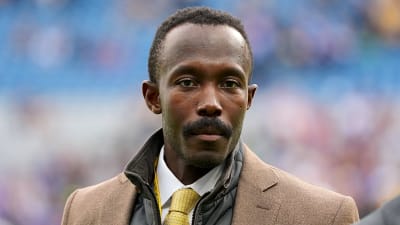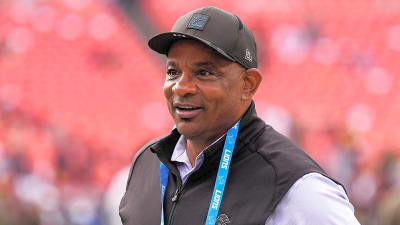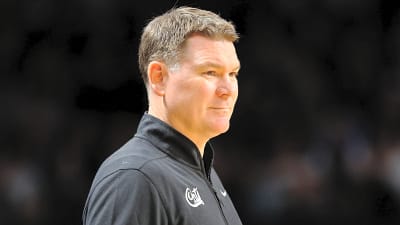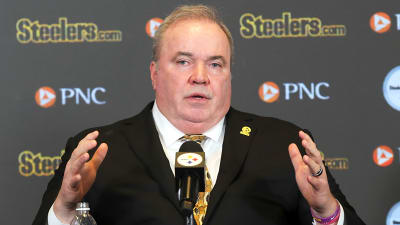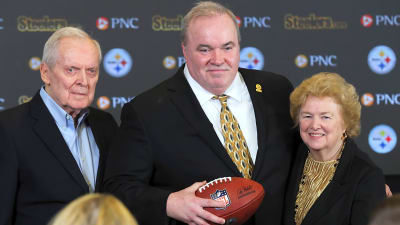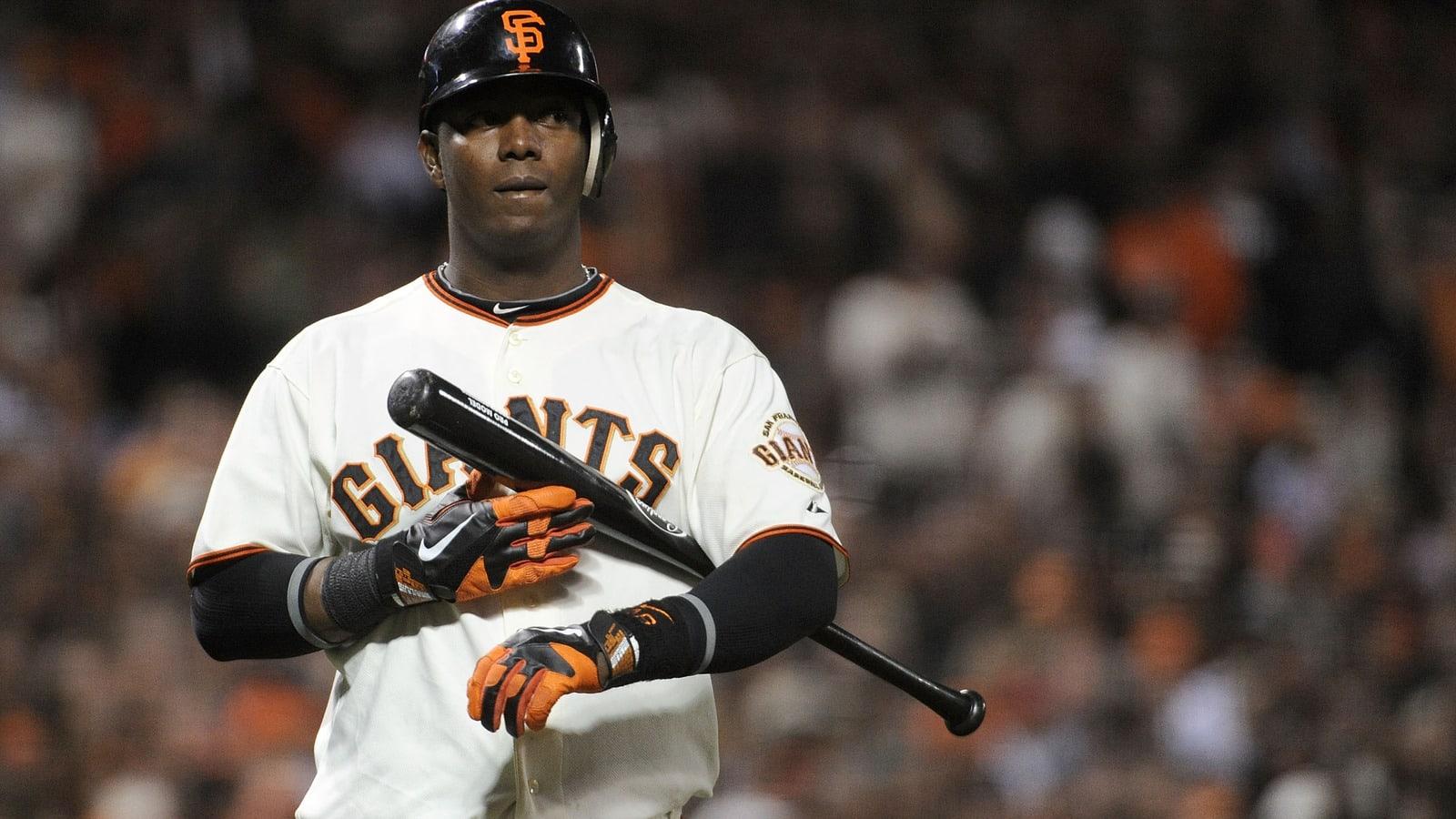
The 2017 Baseball Hall of Fame Ballot, Part 1
One of my favorite things about baseball is how relaxing I find the game. The gentle rhythm and deliberate pace make it perfect for unwinding after a long summer day. In fact, only two baseball things really get me riled up. One is when my favorite team plays postseason baseball, at which point the game transforms into a stomach-churning three hour descent into a nightmare realm where nothing makes sense. The other is the Baseball Hall of Fame.
Yes, I'm one of those people who gets mad online every year about the Hall of Fame. I jeer at the voters who leave ballots blank to make some kind of self-important statement, I stress over the fates of deserving players approaching the end of their term, and I'm already looking for hotel rooms for Chipper Jones' induction ceremony in 2018. However, unlike past years, when all I could do is angrily post to Twitter when an obvious Hall of Famer like Craig Biggio got a mere 68% of the vote, this year I work for Baseball-Reference, which means that it's actually my job to be mad online about the Hall results!
So in this series of articles, I'm going to review the Hall of Fame case for all 34 players on the ballot. I'll also include their Hall of Fame odds, as indicated by Bill James' Hall of Fame monitor. This system, which you can read more about here, awards points based on achieving certain statistical thresholds, winning certain awards, or appearing on certain leaderboards. If a player's monitor score is 100 or better, James' system considers it a good possibility that he'll get in. If it exceeds 130, it means it thinks he's a virtual lock.
One last thing that I definitely want to clarify: I'm only speaking for myself here, not my co-workers or Baseball-Reference as an organization. There's plenty of disagreement internally on pretty much every sports issue that you can imagine, especially the Hall. And, in a year as contentious as this one, I want to emphasize that B-R will always be an objective and unbiased source for factual information. OK, with those disclaimers out of the way, let's get started. I've split the ballot up into three groups, and I'll be posting on one group per day for the next three days. Today, I'll be covering the 13 players I consider to be locks not to make my (purely hypothetical) final ballot. Tomorrow, I'll look at 4 who are guaranteed to get my vote. And in the last one, I'll look at the 17(!) players who are on the bubble for me and make my final picks.
Group One: Thanks, but No Thanks
Casey Blake Hall of Fame Odds: 6 (score on the Bill James Hall Monitor, 100 = Good Shot at HoF). Career Wins Above Replacement: 24.9. JAWS: 23.5
Let's start with Casey Blake. In his way, Blake's case reflects one of the central themes/tensions of this year's voting: the tug-of-war between old-school voting methods and newer ideas. James' Monitor, based on the old-school stats and achievements that more traditionally-minded voters tend to value, has Blake rated as the single least likely player to reach the Hall of anyone on this year's ballot. Yet new-school measures like JAWS and WAR have him closer to the middle of this tier and not far off Edgar Renteria who, as we'll see in a moment, James' model sees as a good candidate for induction.
So what's the deal? It's not, as you may suspect when it comes to WAR, because Blake was an excellent fielder (although he was fine). Rather, it's Blake's eye that WAR really appreciated. From 2004-09, Blake had four full seasons with an On-Base Percentage of .340 or better and a fifth with an OBP of .339. That kind of on-base ability, mixed with the fact that Blake was a decent to good fielder, is enough to rack up a fair amount of WAR over the course of a 13-year career.
Still, it's not much more than decent. 24.9 career WAR would rank 65th among active MLB players. Do you think Marlon Byrd is a Hall of Famer? Denard Span? They both have more WAR for their careers than Blake. Voters will overlook him because of he lacked the kind of power you'd want out of a corner infielder, but he was a decent MLB regular for a number of years and, as you'll see, that actually puts him ahead of quite a few players in this tier.
Pat Burrell Hall of Fame Odds: 20 (score on the Bill James Hall Monitor, 100 = Good Shot at HoF). Career WAR: 18.8. JAWS: 17.6
James' Monitor likes Burrell's case a little more than a WAR-based model like Jay Jaffe's JAWS, since the Monitor gives Burrell credit for things like his 2008 title run with the Philadelphia Phillies. But, like Blake's decent showing with WAR, it's still well below the standard you're looking for out of a Hall of Famer.
Burrell also probably suffered a bit in his public perception due to being a part of the generation of Phillies that came before the dynastic Utley/Rollins/Hamels teams. In fact, it'll be interesting to compare Burrell's results with those of another Philly with a World Series ring and a career WAR in the teens: Ryan Howard.
Orlando Cabrera Hall of Fame Odds: 46 (score on the Bill James Hall Monitor, 100 = Good Shot at HoF). Career WAR: 21.4. JAWS: 20.6
Contributor to the curse-breaking 2004 Boston Red Sox or not, I was a little surprised to see O-Dog do so well in the Monitor. But the two Gold Gloves at shortstop give him a nice boost in James' model, even though I would hope that at this point, most voters have largely thrown that out as a good metric for defensive performance.
Indeed, the more advanced defensive numbers paint a less flattering picture. Cabrera was essentially an average fielder for his career, ending up with a net total of just 3 defensive runs in his 15 year career. He also had three seasons where he cost his team 10 runs in the field, versus just one where he saved 10 or more. And while the position adjustment in defensive WAR helps his career numbers for a bit, he still ranks 30th in that metric among players from 1999-2011.
Like pretty much everyone in this tier, Cabrera had an awesome career, just not a Hall of Fame one.
Carlos Guillen Hall of Fame Odds: 30 (score on the Bill James Hall Monitor, 100 = Good Shot at HoF). Career WAR: 27.7. JAWS: 25.9
Carlos Guillen had the best single-season of any player we've looked at so far: a 6-WAR year in 2006 that saw him finish 10th in Most Valuable Player voting (and honestly, he probably deserved to finish higher). But if you're voting for Guillen, I hope you really really like peak seasons, because that year accounted for more than 1/5 of his WAR total for his career.
In fact, that's pretty much the bottom line with Guillen. He had made three All-Star Games and made a couple of decent runs at a batting title, but he's not anywhere close to any of the career milestones that would make you even consider voting for him in the Hall of Fame. It's tough, but on a ballot this crowded, those are the breaks.
Derrek Lee Hall of Fame Odds: 58 (score on the Bill James Hall Monitor, 100 = Good Shot at HoF). Career WAR: 34.3. JAWS: 30.7
Considering I have 21 players I'm at least considering throwing a hypothetical vote behind, Lee ended up being an easy cut, but he at least has a reasonable case. He was unquestionably the best hitter in the National League in 2005, leading in traditional stats like batting average and slugging percentage as well as more advanced categories like OPS+ and WAR. His 331 career Home Runs, though not exactly Hall-worthy for a first baseman in this era, are impressive considering the rest of the players in this tier (he was actually in the Top 100 when he retired, although he's since been surpassed).
In another year, Lee might deserve at least a longer look. But this ballot is just too crowded to spend too long exploring a player who looks like a sure no.
Melvin Mora Hall of Fame Odds: 18 (score on the Bill James Hall Monitor, 100 = Good Shot at HoF). Career WAR: 28.2. JAWS: 27.1
Unless you're a Baltimore Orioles fan, there's a high likelihood that Melvin Mora was better than you remember. In his best season, 2004, he led the American League in OBP, racked up 5.6 WAR, and placed in the Top 20 in MVP voting.
That last bit shows just how tenuous this whole process can be, and why people should take things like MVP voting as seriously as possible in the moment. Knowing what we know now, Mora was unquestionably one of the AL's 10 best players in 2004, and if you weren't inclined to vote for a pitcher like Johan Santana or Curt Schilling, you could make the case he was in the Top 5. Would Mora suddenly have a shot if he had finished in the Top 5, rather than the Top 20, in one MVP race? Of course not. He finished with just barely over 1,500 hits and 750 runs batted in; he was never getting a serious look from voters. But he might at least seem like a more justifiable choice for the ballot in that universe.
Magglio Ordóñez Hall of Fame Odds: 114 (score on the Bill James Hall Monitor, 100 = Good Shot at HoF). Career WAR: 38.5. JAWS: 35.2
Magglio is the highest achieving player to miss the cut for the middle tier and, in another era, we might be talking about him as someone who's going to at least hang around for a few years. He's just four hits behind Larry Walker, 15 homers behind Edgar Martinez, and 10 WAR ahead of one of the leading candidates for induction who we'll be getting to on Friday.
Still, Ordóñez's case is too flawed for me to consider promoting him ahead of similarly flawed, but more interesting, outfielders like J.D. Drew and Mike Cameron. Aside from one year in 2007 when Ordóñez went absolutely bonkers, he was never really more than solid. He had a few very good 5-6 WAR seasons, although his 1999 numbers looks a little less impressive when you remember an .858 On-Base Plus Slugging in Comiskey was just 15% better than a league average performance that year. Most of his WAR that year came from uncharacteristically good defense. In 1999, 27 of his WAR runs came from defense (roughly 2.5 wins), which is 19 more than he'd have in any other season of his career. In fact, if you take that year out, Ordóñez would cost his teams 72 runs in field for his career.
So, if Ordóñez's true performance in 1999 was more likely in the 3.5-4 WAR range, you're left with one monster season, two very good seasons, and a lot of stat accumulation. That's an excellent career, and it doesn't even get into some of the other high points on his resume, like his batting title, that boost his Monitor score. But, at the end of the day, I simply don't think Ordóñez was one of the 20 best players on the ballot this year.
Edgar Renteria Hall of Fame Odds: 109 (score on the Bill James Hall Monitor, 100 = Good Shot at HoF). Career WAR: 32.1. JAWS: 28.8
But I do think Magglio has a better case than Renteria, who seems to be getting a little more attention than Ordóñez. Renteria's career is more filled with the kind of things voters tend to prefer in a Hall of Famer. He has multiple Gold Gloves at a key position, five All-Star appearances, and even a nice bit of postseason heroics thanks to his MVP-performance in the 2010 World Series.
But when you drill into what actually happened on the field, I'm not sure how much is actually there. His seven year peak WAR is worse than Lee or Mora, let alone Ordóñez, and his advanced defensive stats indicate a player who was never really above average and perhaps even a tick below for most of his career. If you're voting for him, you're probably basing it on the 140 HRs he hit while playing SS, 15th most at the position since 1913. But that also traps you into voting for J.J. Hardy (184) and Jhonny Peralta (173). And those HR numbers cover for the fact that Renteria was only an above average hitter in three seasons, and finished with a career OPS+ of 94.
Arthur Rhodes Hall of Fame Odds: 28 (score on the Bill James Hall Monitor, 100 = Good Shot at HoF). Career WAR: 15.4. JAWS: 14.8
Rhodes deserves some credit for simply hanging around. He's one of seven guys on this year's ballot with at least 20 years in the majors.
The other six? Roger Clemens, Barry Bonds, Tim Raines, Ivan Rodriguez, Curt Schilling, and Gary Sheffield.
That said, Rhodes contributed far, far less than any of those other six. While he had more innings pitched than Trevor Hoffman and Billy Wagner, he had far fewer strikeouts per 9 IP, a far too high 1.304 Walks and Hits per IP (WHIP), and a decidedly non-Hallworthy 109 ERA+. To put that last one into context, Jeff Samardzija had an ERA+ of 108 this year. So this is an easy no.
Freddy Sanchez Hall of Fame Odds: 34 (score on the Bill James Hall Monitor, 100 = Good Shot at HoF). Career WAR: 15.8. JAWS: 15.9
As is Sanchez, whose entire case seems to be built around a single batting title and a couple of All-Star appearances.
Matt Stairs Hall of Fame Odds: 8 (score on the Bill James Hall Monitor, 100 = Good Shot at HoF). Career WAR: 15.3. JAWS: 13.6
Look, I want to preface this by saying that Matt Stairs has accomplished far more than I have or likely ever will. But he has no business being on this ballot.
And frankly, it's puzzling to me that Stairs is here and Javier Vazquez isn't. Vazquez had multiple 6-WAR seasons, an All-Star appearance, and 4th place Cy Young Award finish in 2009. Clearly Vasquez is paying the price for anonymous stints in the back-water towns of New York and Chicago, while the voters paid much closer attention to Stairs' time in glamorous Kansas City.
I don't mean to pick on Stairs; you could make the same argument regarding Rhodes, Sanchez, Mora, and honestly plenty of the other players we've looked at today. And in the grand scheme of things, it's not a big deal. Vasquez's case probably wouldn't have been enough to place any higher than the top end of this tier. But in a process that, over the last few years, has been marred repeatedly by a number frustrating and seemingly arbitrary decisions from voters, it's disappointing to see the ballot committee compound the problem.
Jason Varitek Hall of Fame Odds: 54 (score on the Bill James Hall Monitor, 100 = Good Shot at HoF). Career WAR: 24.3. JAWS: 21.5
Along with Renteria, Varitek is the only person in this tier to actually receive a vote that we know of (as of the time this post was written).
And I get it. He's a Boston legend who helped the Sox win two World Series, spent his entire career with the team, and was behind the dish for two of the best pitching seasons of all-time in 1999 and 2000.
There's even a little bit of fire behind the smoke of that last point if you go into Pedro Martinez's splits. In 1999 and 2000, his Earned Run Average was one run higher in the (small sample size of just a few) games where someone other than Varitek caught for him.
But that's thin, and it's not like we're inducting Javy Lopez for catching those Atlanta Braves pitchers in the 1990s. In the end, Varitek's career is remarkably similar to Mike Scioscia's. Like Tek, Scioscia ended up with around 25 WAR for his career. Like Tek, Scioscia played for one team for his career and won two rings with said team. Scioscia even had a better peak year (1985, 5.4 WAR) than Varitek (2004, 4.0). But there's a reason why no one's ever said "You know what this Hall of Fame is missing? Mike Scioscia."
Varitek is simply not a Hall-of-Famer, nor is he really particularly close. And in a year where there are around 20 good candidates for a ballot with a maximum of 10 slots, it would be nice if everyone could take this just a little more seriously.
Tim Wakefield Hall of Fame Odds: 30 (score on the Bill James Hall Monitor, 100 = Good Shot at HoF). Career WAR: 34.6. JAWS: 29.8
It may feel like Wakefield was around forever, but he even lags behind the other pitching contenders in the kind of raw accumulation stats you might assume he'd do well in. He started fewer games than Clemens and Schilling and had fewer innings pitched than Clemens, Schilling, or Mike Mussina. And that's not even considering the fact that ERA+ only ranks him as 4% above league average for his career. There should absolutely be an exhibit on knuckleballers in the Hall of Fame.
But Wakefield just doesn't deserve a plaque.
--
More must-reads:
- The 2017 Baseball Hall of Fame Ballot, Part 2
- The 2017 Baseball Hall of Fame Ballot, Part 3
- The 'MLB active doubles leaders' quiz
Breaking News
Trending News
Customize Your Newsletter
 +
+
Get the latest news and rumors, customized to your favorite sports and teams. Emailed daily. Always free!
